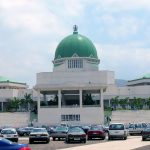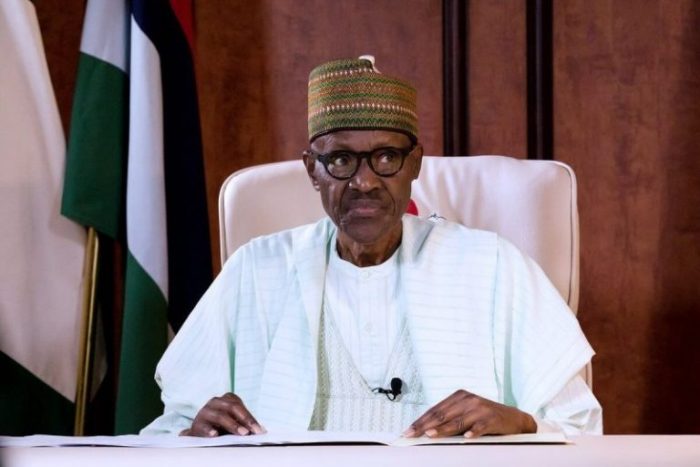The Comptroller General of the Nigeria Immigration Service (NIS), Muhammed Babandede, has alleged fraudulent activities in a contract on resident permit for expatriates signed between the ministry of interior and tech company, Continental Transfert Technique Ltd (CONTEC) in 2007.
The company is a partner to NIS on Combined Expatriate Resident Permit and Alien Card (CERPAC).
CERPAC is mandatory for expatriates in Nigeria. It allows them to live and work in the country and can be renewed annually or every two years depending on the validity of the period given.
The allegations come about 18 months after interior ministry, under former minister Abdurahman Dambazau, reviewed the fees for the card from $1,000 to $2,000 on December 13, 2018, following a request by CONTEC.
Mr Dambazzau exclusively told this newspaper that the review was a part of reforms aimed at checking fraudulent practices by firms granted expatriate quota as well as increasing opportunities for Nigerians.
Following the reviews, Nigerian lawyer, Femi Falana sued the company, interior ministry and the immigration service over the fraudulent contract. A judge, Rilwanu Aikawa, of the Lagos Division of the Federal High Court, described as unconstitutional the contract between the interior ministry and Contec, for the collection of the CERPAC fee.
He upheld Mr Falana’s position that the minister lacked the power to increase the fee without a money bill presented by the president and passed by the National Assembly.
Allegation
Mr Babandede on Wednesday, complained that except that from the CERPAC, the revenue generated by the NIS goes to the Treasury Single Account (TSA) of which CONTEC takes a large chunk before the rest is deposited into the coffers of the federal government.
He disclosed this when he appeared before the Senate’s joint committee on finance and national planning. It was the first day of a five-day public hearing on the 2021-2023 Medium Term Expenditure Framework and Fiscal Strategy Paper (MTEF/FSP).
The NIS boss said CONTEC, through the lopsided contract agreement, ‘cornered’ N15 billion out of N20 billion realised in 2018 and N23 billion out of N40 billion realised in 2019.
“We have six areas where revenue is generated, one is passport, in the year 2018, the projection we gave to government was that we will generate N14.2 billion but we generated N14,772,051,641. So we generated more than we promoted.
“In 2019, we projected would be able to generate N22.6 billion but we were able to generate N16,777,643,573. The reason is very clear, we introduced a new generation passport, it is higher than the old one. We thought we could run it in all the states but we were not able to roll, that is why there was a shortfall.
“In 2020, we dreamed that we will generate N23.2 billion but unfortunately due to COVID-19 we have only generated N5.7 million as at June 30. Now that we are opening our offices we hope that we will be able to get more revenue,” he explained.
The agreement signed between the ministry of interior and the company, he further said, “is that if someone, a non-Nigerian, buys a resident permit, the money is shared between, CONTEC and the interior ministry”.
“…initially its CERPAC was $1,000 and at that figure, CONTEC collects 72 per cent. Later the ministry of interior changed the price to $2,000 and adjusted the payment model.
“CONTEC, 55 per cent; federal government, 33 per cent; immigration, seven per cent and ministry of interior, five per cent.”
Way out
When asked the way out by the panel, Mr Babandede said the case has been reported to the ministry of justice and the AGF is acting on it.
He prayed that the power to issue resident permit be given to the NIS. This, he said, is because CONTEC takes large amount of money and does very little in return.
“We can do without them. This job (issuing resident permit), we can do it. It is not rocket science. This has been on for many years, this is a company that took Nigeria to court, to arbitration, it is a huge issue, I don’t want to discuss more because the ministry of justice and Mr President have taken it very seriously.
“Nobody should defend CONTEC as a company to do business in Nigeria. This is a company that took us to court, this is a company that wanted to seize our property, including our mission and NNPC building. Two thousand dollars for resident permit, we can make that resident permit with $500, $1,500 can go to the federal government, we “throw away” the company, and government will make more money,” he said.
The panel thereafter, vowed to ensure that the Senate carries out an investigation into the fraudulent contract.
CBN, NPA others might be sanctioned
Meanwhile, the chairman of the committee, Adeola Olamilekan, threatened sanction on heads of some revenue generating agencies of the federal government if they failed to appear before it on Thursday.
Heads of the mentioned agencies include, Governor of the Central Bank of Nigeria, Managing Director of Nigerian Ports Authority, Executive Vice Chairman of Nigeria Communication Commission, Executive Secretary of Nigeria Shippers Council and Director General of Nigeria Maritime Administration and Safety Agency (NIMASA).
The threat was issued after the panel noticed that principal officers of the agencies failed to appear despite the invitation while others sent in representatives that could not speak on the revenue figures of their agencies with any authority.
The hearing is expected to run till next Tuesday.
The 2021-2023 MTEF/FSP was transmitted to the Senate on July 20 for consideration by President Mohammadu Buhari preparatory to the presentation of the 2021 Appropriation Bill. It was, thereafter, referred to the committee for consideration even while members are on recess.
National Assembly
The federal government proposed N12.6 trillion as aggregate budget for the 2021 fiscal year with a deficit of N5.16 trillion, partly financed by a total loan package of N4.28 trillion.
It also targets N481.4 billion as statutory transfers – also known as first line charge (a category into which the National Assembly budget falls). About N5.7 trillion was pegged as recurrent expenditure, N3.3 trillion for capital expenditure and N3.12 trillion for debt servicing.
PPREMIUM TIMES






2 Comments